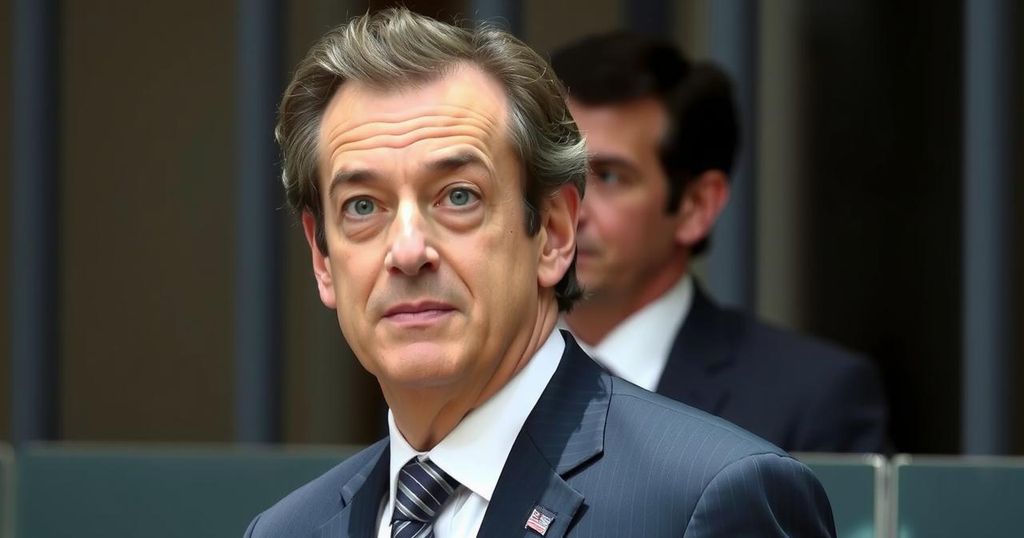Former French President Nicolas Sarkozy is on trial for allegedly accepting millions from Gaddafi to fund his 2007 election campaign, compromising his integrity. Accusations include promising to enhance Gaddafi’s reputation in return for financial support, with co-defendants also standing trial. Sarkozy’s history of legal issues, including prior convictions after leaving office, adds to the weight of these allegations. If convicted, he faces substantial prison time.
Nicolas Sarkozy, the former President of France, is currently standing trial in Paris over allegations of receiving illicit financial support from the deceased Libyan leader Muammar Gaddafi to bankroll his 2007 presidential campaign. The prosecution asserts that in return for this substantial funding, Sarkozy pledged to assist Gaddafi in mitigating his negative image in the eyes of Western nations. Throughout the proceedings, Sarkozy, now 69 years of age, has consistently maintained his innocence, attributing the allegations to ulterior motives aimed at discrediting him.
The investigation into these claims commenced in 2013, following accusations made by Saif al-Islam, Gaddafi’s son, who alleged that Sarkozy had accepted millions to finance his election efforts. A year later, Ziad Takieddine, a Lebanese businessman known for his intermediary role in transactions between France and the Middle East, claimed to possess documented evidence proving that Sarkozy’s campaign was significantly funded by Libya, with payments allegedly continuing post-presidency. Twelve co-defendants are also being tried alongside Sarkozy, all of whom deny the accusations.
In connection with this case, Carla Bruni-Sarkozy, Sarkozy’s wife and former supermodel, faced charges last year for allegedly concealing evidence and colluding with wrongdoers, which she vehemently denies. Following his 2012 electoral defeat, Sarkozy has faced multiple criminal investigations, leading to a conviction earlier this year for overspending during his re-election campaign which resulted in a one-year sentence, with six months suspended. Furthermore, he was sentenced in 2021 for attempting to bribe a judge, marking him as the first former French president to face imprisonment, although he has been allowed to serve this sentence under electronic monitoring.
This ongoing trial over the so-called Libya connection is slated to continue until April 10, with Sarkozy potentially facing a decade in prison if found guilty. It is noteworthy that although Sarkozy appeared in court without an electronic tag, the specifics of his sentence are still being finalized.
The allegations against Nicolas Sarkozy arise from a broader context of political financing and corruption, particularly given the substantial financial contributions Gaddafi is purported to have made to Sarkozy’s campaign. The intricate web of claims and testimonies, including those from Saif al-Islam and Ziad Takieddine, highlight the complexities surrounding political funding and international relations during Gaddafi’s regime. The repercussions of these allegations extend beyond Sarkozy’s political career, tapping into issues of accountability and transparency within political financing in France. The intertwined destinies of Sarkozy and Bruni, particularly amid serious legal assertions, further complicate the narrative, revealing the potential for scandal to affect personal lives significantly.
Nicolas Sarkozy’s trial signifies a pivotal moment in French political history, as it embodies the ongoing scrutiny surrounding political financing and ethical conduct among public officials. The convergence of high-profile figures and serious allegations reflects a broader concern regarding accountability and the integrity of electoral processes. As the trial progresses, it serves both as a reminder of the legal implications of political maneuvering and the lasting impact of leadership decisions on democratic institutions.
Original Source: www.bbc.com






